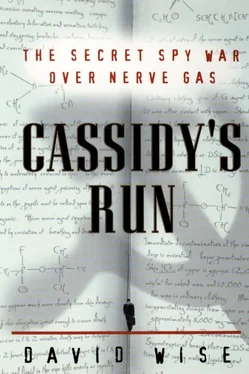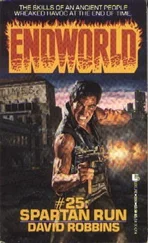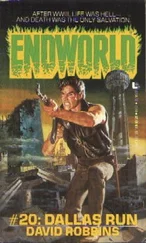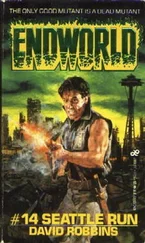Vybornov persisted, Cassidy’s report to the FBI continued. “He said, ‘What kind of a house do you have, something like this?’ and he pointed to a two- or three-story rowhouse we were just passing. I said no, Mike, and smiled. ‘We don’t have houses like that in Florida. I live in a house all by itself and on one floor.’
“He said, ‘Does your wife know anything about this?’ I said, ‘No, nothing and I want it kept that way.’ He asked if neighbors were friends of mine. I said a few of them were. He said do they visit? I said I’m not on a social basis with neighbors. We speak when we see each other during the day and that’s about it.
“He asked how finances were and I told him not so good. He said there was $4,200 in my package and… he hoped this would help.” Cassidy, who always complained he needed more money, replied, “But Mike, I’m missing the big paydays.”
He reminded Vybornov that he had provided the name of Nicky, the sergeant at Edgewood, but had not been paid for that. “I missed the payday on Nicky,” Cassidy protested. Vybornov adopted a sheepish expression as though he agreed.
Vybornov, Cassidy reported to the FBI, then pressed for a document outlining a plan for industrial mobilization in an emergency that Cassidy had said he had access to at a local university. “We are very much interested in it. We would very much like to have that but not if you have to expose yourself. Do not take and reproduce if you must give your identity. Do not give name, address, phone number—nothing. It’s not worth it to us, but get it if you can.”
As they walked along Eastchester Road toward Gun Hill Road, they were nearing the drop site. “He said he would walk very slowly up this road and that I was to get the car, pick up my package, and then pick him up… about five blocks away…. I told him I would be back in six or seven minutes.”
Cassidy retrieved his rock, got in his car, cruised along Eastchester, and spotted Vybornov in the middle of the block. “As I pulled to the curb he came over and got in. I pulled my rock from my jacket pocket and gave it to him…. He pulled his from his raincoat pocket.” There was no need to put tape on the light pole, Vybornov said, “because I already know you have [the rock].” It was the only time that Cassidy and a Russian had simply handed the rocks to each other.
“He had opened the door and was getting out. I noticed he had left his umbrella in the car in his haste to leave and I hollered and opened the door and extended it to him. He made several stabs at it before he caught the handle…. To me he lost his composure—seemed he was very anxious for us to separate and me to get the hell out of there.” WALLFLOWER gunned his car and took off.
Inside the rock handed to Cassidy was a message in secret writing. It provided his schedule for 1977, called for drops and meetings in April and October, and gave the dates and times of the radio transmissions he was to receive. It asked him to provide the industrial-mobilization plan, and to reconnoiter a nuclear-ammunition depot at the air force base in Charleston.
The message also instructed Cassidy, in case the Soviets should ever lose contact with him, to go to New York City on the last Saturday of January, April, July, and October and wait, pipe in mouth in front of the antiques store in Brooklyn at 4 P.M., holding the usual book-sized package with yellow wrapping. If contact was not reestablished, he was to try again the next day.
In Cassidy’s appraisal to the FBI of the meeting, it was plain that he had been underwhelmed by Vybornov. “He seemed to have his game plan and stuck with it. This did not include any comments or discussion from me—just answer the questions. He was far from being polished like, say, Mike #1. He had hard features and could pass for alongshoreman or a lumberjack. He wanted to dominate the meeting—and did—and was very confident, bold, hard as a rock, until he started out of the car when he seemed to lose all his composure in attempting to grab the umbrella.”
Cassidy kept his cool at his meetings with the Russians, and he did this time as well, despite Vybornov changing the procedures and peppering him with questions. But he found each encounter with the Soviets nerve-racking. “I was always on pins and needles worrying that I was going to blow it,” Cassidy confessed. “I was worried I would contradict myself or make a mistake and blow the thing apart.” Cassidy was on edge even though the Russians never indicated the slightest suspicion that he was anything but a genuine mole.
“I felt they trusted me and believed me,” he said. “I had a job to do and I wanted to do it.”
Marie Cassidy remembered that her husband usually had trouble sleeping before a meet. “He had sleepless nights, plenty of that, and stomach problems. He would eat very little before he’d go.” The former nun said she had no appetite on those nights either.
“I was worried about the danger,” she said. “I could see how nervous he was before a meeting. There were middle-of-the-night meetings. So I burnt my candle and prayed.”
CHAPTER: 16
THE PROFESSOR
In 1976, GilbertoLopez y Rivas, busy as he had been with his espionage activities, finally received his Ph.D. from the University of Utah. [1] The title of his dissertation was “Conquest and Resistance: The Origin of the Chicano National Minority in the Nineteenth Century (A Marxist View).”
By then, he was back in Mexico City, where he had been working as a researcher at an anthropological institute. But he did not remain there, as Robert Schamay, who had been the FBI case agent in Salt Lake City, learned in October.
“I was out hunting on a mountain in southern Utah in October of 1976, and a game warden knocked on the trailer. He said I had a phone call. I come off the mountain and find a pay phone in a little dinky town, and it’s Gene Peterson. I have to be in Minnesota as soon as possible.”
Peterson, by now Soviet section chief at FBI headquarters, was continuing to supervise the spy case. He ordered Schamay to cut short his hunting trip and get moving. “Next morning,” Schamay recalled, “I was off the mountain, back home in Salt Lake, packing, and on Monday I’m on a plane to Minneapolis.”
Two years before, while still a student in Austin, Lopez had told Aurelio Flores that he might be moving to Minnesota. Headquarters had plucked Schamay off the mountain because the bureau had learned that the PALMETTOs had in fact surfaced there. Gilberto Lopez y Rivas, Soviet spy, was now an assistant professor of Chicano studies at the University of Minnesota. Professor Lopez had the distinction, in all likelihood, of being the first Russian spy ever to become a member of the faculty of that institution. The university, of course, knew nothing of his other, secret life.
Manuel Guerrero had brought Lopez to Minneapolis. Guerrero, then chairman of the university’s Department of Chicano Studies, was short one professor for the fall semester. “We advertised in the Chronicle of Higher Education, ” Guerrero said. Lopez had answered the ad and traveled to Minneapolis for a job interview. “I hired him,” Guerrero continued. “He was hired on the basis both of his résumé and the interview. Gilberto was a very amicable, social person. He made a lot of friendships.”
Lopez, his wife, and their children settled into faculty housing off Fourth Street, on the ground floor of a two-story garden apartment. The FBI wiretapped the place; it did not attempt to install room bugs as it had done in Austin.
Alfredo Gonzales, a colleague in the Chicano studies department, recalled that while Lopez served on the faculty, a Spanish club made a film called Minnesotanos Mexicanos . “It was a documentary of Mexican Americans in Minnesota, and he is shown in the film twice. He is tall, very thin, and slender, with dark brown hair, light skin. A European type, not Indian. He had a strong voice, a heavy accent but good English. I knew him socially, but he never once mentioned his political views. He never discussed politics. He had strong views on the historical treatment of Chicanos. He never mentioned the Soviet Union. He loved to talk about opera, and art, and history.”
Читать дальше












